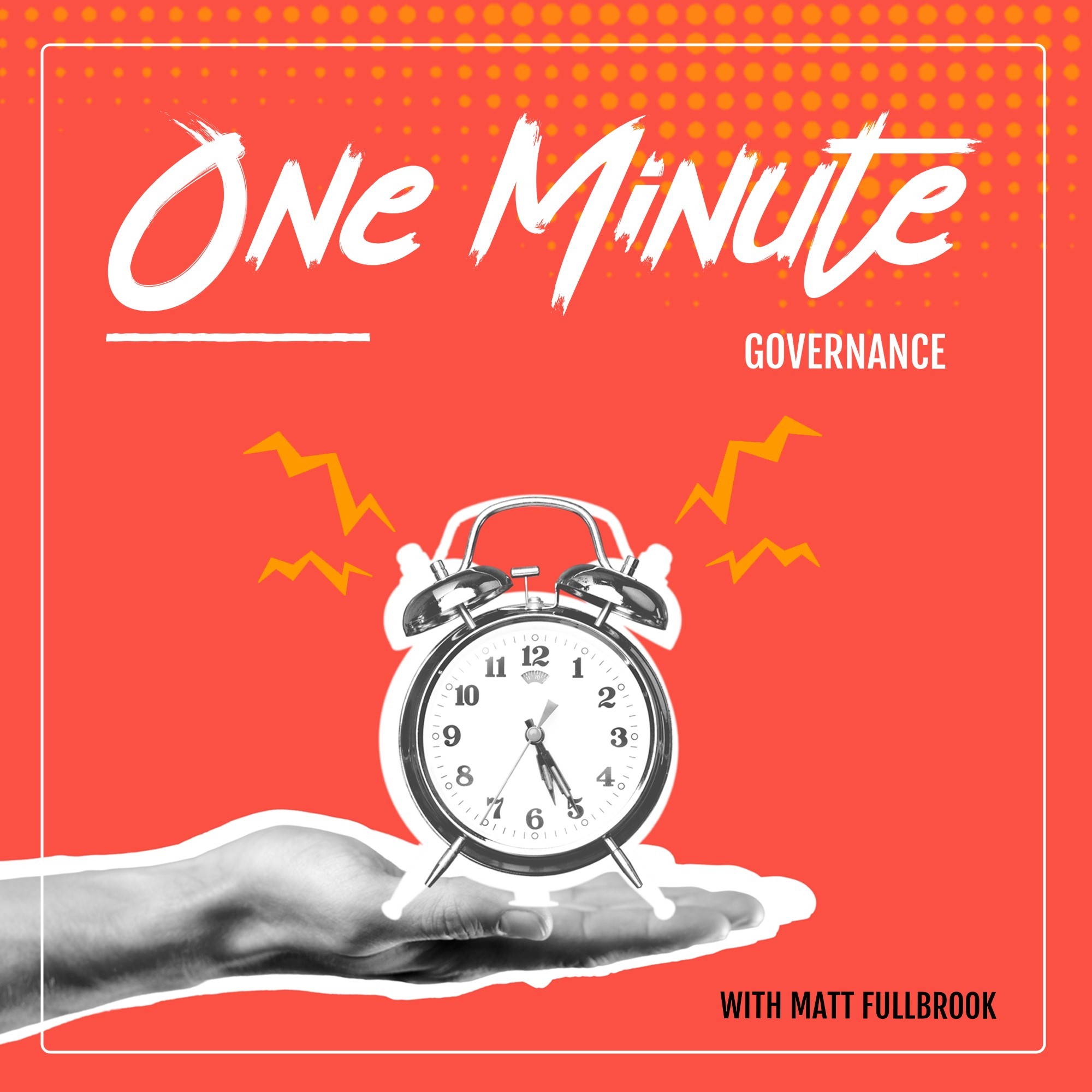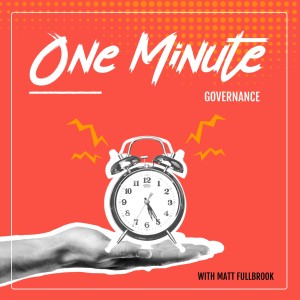
138.9K
Downloads
271
Episodes
Season 5 is live! New episodes every Monday and Thursday. This season, we’re exploring questions that directors need to *answer*. Are you a director, senior executive, investor, or someone who’s just curious about corporate governance? Tune in for insights about how things work inside and outside the boardroom, based on 20 years of experience and interactions with thousands of directors from around the world. Each episode lasts about one minute and will provide you with questions to ask yourself, your board and your management team, designed to optimize the way your organization makes decisions. Matt Fullbrook is a corporate governance researcher, educator and advisor located in Toronto.
Episodes

Monday Oct 03, 2022
Monday Oct 03, 2022
People need power to get things done, but even having a LOT of authority doesn't mean you'll have any power. This is a critical thing to understand if we want to understand corporate governance.
SCRIPT
A few episodes ago I cross-posted the first episode of the Sound-Up Governance podcast featuring Professor Tiziana Casciaro from the Rotman School of Management, where I worked for 20ish years. It was no accident that Tiziana was the first guest – she’s an expert on what power is, how people get it, how people lose it. Even more interestingly, she’s got really cool insights into why people with lots of authority – maybe CEOs or corporate directors, for example – sometimes don’t really have much power, meaning they can’t really get anyone to do the things they want. Tiziana describes power as controlling access to something that other people want. That something could be really tangible, like money or a promotion. It can also be more abstract, like comfort or happiness or just feeling cool. I’m sure you can already see where I’m going. What could possibly be more critical to corporate governance than power? Sure, every board technically has a huge amount of authority in their organization. In a way, they have *all* the authority in their organization. Any authority others have has been delegated to them – on purpose or by accident – by the board. And the board is ultimately accountable for what those others do with their authority. But who cares about authority without power? What difference does it make for corporate governance to happen, for decisions to be made, if nobody actually y’know does anything in response to those decisions? It raises a cool question: “what resources does a board control access to, and why would anyone in an organization care?”

No comments yet. Be the first to say something!